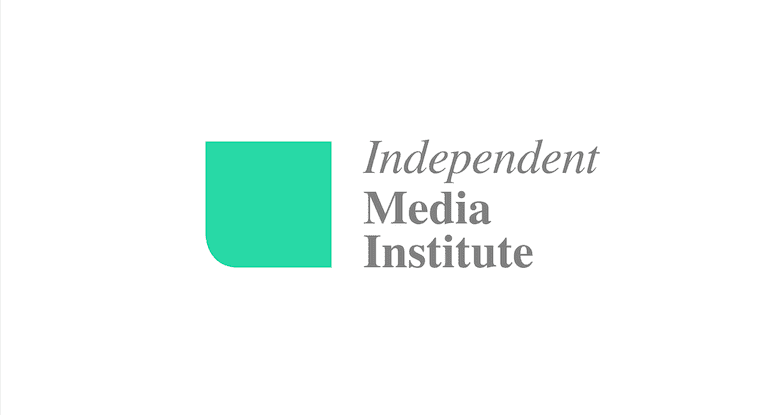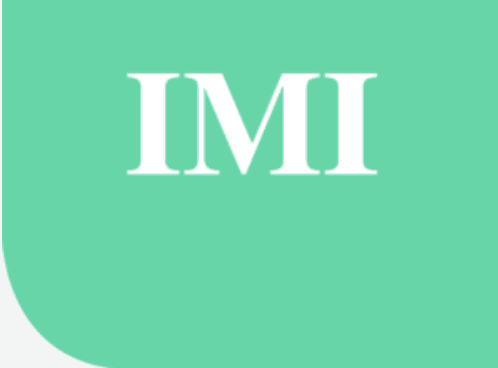The pandemic has presented us with new problems, and resurrected old ones. As always, our dysfunctional media system has amplified them or, even worse, pretended they don’t exist.
In some cases, the problems are rooted in the media itself.
The talented journalists and public intellectuals we work with have zeroed in on some of the most pressing causes, educating the public about what the problems are, and also helping decision-makers arrive at the best possible answer. That’s what good media can do—and it’s what you do as a supporter of the Independent Media Institute. I hope the rundown below on what we’ve done recently will inspire you to make the leap to support IMI.
I am so impressed by the quality of the work that our team and writers are producing—and it’s encouraging to see that it has increasingly global appeal. More on that further down.
Our Globetrotter project’s Vijay Prashad made the case for preventing what could be the most disastrous policy of the 21st century: a cold war with China. The amount of time and money spent on defense procurement, on trying to carve out separate spheres of interest, and on demonizing another country will come at an opportunity cost of what desperately needs to happen—educating, feeding, and strengthening the poorest citizens across the world, and building cooperation and solidarity to deal with global challenges, such as pandemics, climate change, and much more. The fault lines are already starting to appear; it will take the dedicated work of journalists and the wider public to prevent it.
Prabir Purkayastha, also writing for IMI’s Globetrotter project, explained why private medicine doesn’t have a good track record of producing vaccines, especially for illnesses in the developing world: it’s not just that there’s not much money to be made, it’s also that vaccines don’t produce an ongoing stream of profits. What’s the business sense in that, right? I am proud that these articles were widely circulated in the independent press in the U.S., and all the more that they found audiences in many newspapers and online journals across the world. The need for quality independent journalism on the issues of our time isn’t restricted to the U.S.
Another recent Globetrotter article, an authoritative overview by Maj. Danny Sjursen on the U.S.’s virtually ignored bombing campaign in Somalia, was widely picked up in the U.S.—and by two of the largest online news publications in Somalia. It’s that second part that indicates a wider definition of what is possible when it comes to educating the public.
For the Trump administration, the pandemic is an opportunity to accelerate its projects to attack our core social programs that form the spine of our democracy.
Trump’s team saw the public need for a continuation of government payments to citizens as a chance to advance the long-term project to destroy and privatize Social Security. It was a brazen affair, as Alex Lawson detailed recently for Economy for All. Marshall Auerback’s latest explains how Germany’s highest court appears hell-bent on destroying the euro, and the political union that underwrites it.
Jeff Bryant, writing for Our Schools, exposed the accelerated effort by Betsy DeVos to defund public education and privatize it to the fullest extent possible as the pandemic unfolds. Thom Hartmann covered the disgraceful behavior of Trump’s attorney general, whose abuse of justice increases by the day. The federal government and private companies do little to protect the safety of meatpacking plant employees, even now that the coronavirus pandemic has made this a life-or-death issue, Taylor Ford writes for Earth | Food | Life.
The only counter to this greed and destructive behavior has to be the growth of a democratic culture. April M. Short, writing for Local Peace Economy, covered the mutual aid volunteerism that is sustaining the neediest in American society. And many of the good news stories that continue to happen among us are practically invisible. Short reveals a very creative way that artists are challenging the gentrification process in Oakland. Perhaps the greatest direct and near-term threat to democratic culture is the assault on the voting process itself. Steven Rosenfeld, writing for Voting Booth, laid out the scenarios that lawyers and elections experts are looking at for November, including what might happen if more than one presidential candidate claims victory.
Sonali Kolhatkar went after a media problem that is getting increasingly more complicated—the truth itself. When you combine the deceptive agendas of powerful interests with media publishing technologies that facilitate the mass production of lies, trust in the media is chipped away with each conspiracy theory, and amplified by the misinformed ravings of a disaffected citizenry.
These articles are just some of what we’ve produced recently, and there’s a lot more in the works—we have so much more work to do, but we can’t do it without your support and encouragement.
Please, if you can, make a generous contribution on behalf of the many readers who can’t.
Thanks from Jan Ritch-Frel and the team at the Independent Media Institute

